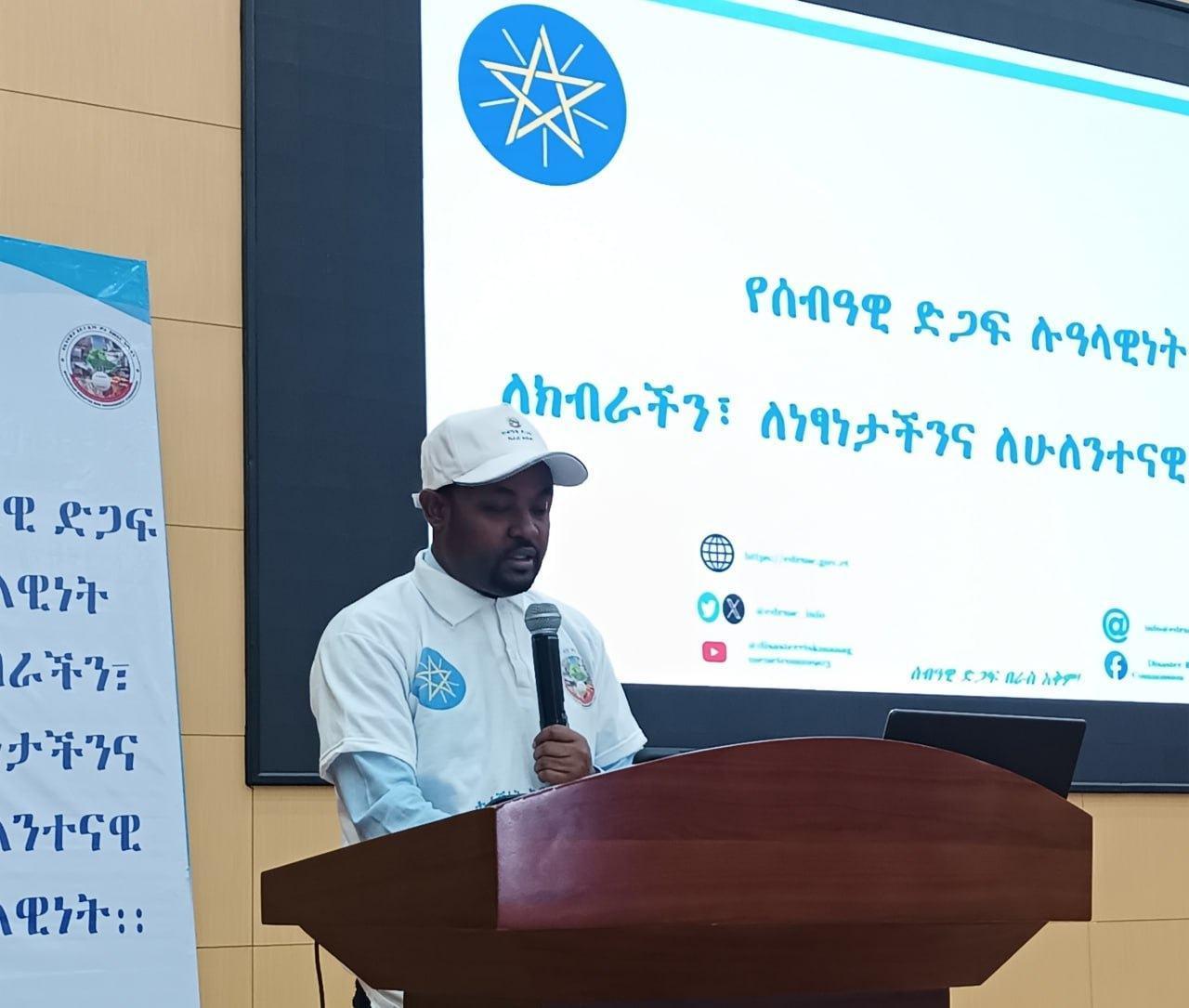Africa-Press – Ethiopia. Ethiopia’s commitment to homegrown development has significantly strengthened its ability to respond to humanitarian needs using its own resources, according to Aklilu Tadesse, State Minister for Cabinet and Sector Oversight in the Prime Minister’s Office.
Aklilu made this assertion during a capacity-building consultation forum held at African Leadership Excellence Academy.
The forum, organized by the Disaster Risk Management Commission in collaboration with the Prime Minister’s Office and the Prosperity Party brought together stakeholders from federal, regional, and city administrations to discuss the implementation of the Humanitarian Self-Reliance Movement Strategic Framework.
Speaking at the event, Aklilu Tadesse emphasized that Ethiopia has made bold and transformative decisions aimed at securing the sovereignty of humanitarian assistance.
According to the state minister, reforms rooted in the principles of Ethiopia’s homegrown development model are producing tangible outcomes that strengthen national self-reliance.
Newly developed policy and legal frameworks for responding to both natural and man-made disasters are enhancing the country’s capacity to independently manage humanitarian challenges, he stated, adding these frameworks reflect a broader national goal of reducing dependency on external aid and promoting sustainable homegrown solutions.
He also pointed to the potential of Ethiopia’s productive citizenry, favorable climate, and abundant natural resources as critical assets in achieving national prosperity.
The state minister also cited the successful implementation of initiatives like the Green Legacy and bounty of the basket initiatives, as clear indicators of the country’s growing capacity for self-sufficiency.
He also referenced progress in key sectors such as industry, mining, tourism, and technology as further evidence of the country’s ongoing transformation.
Looking ahead, the state minister stressed the need for continued diligence in advancing the humanitarian self-reliance agenda, including building up the Disaster Risk Response Fund, maintaining adequate food and non-food reserves, developing standardized storage facilities, enhancing emergency services, and promoting community responsibility and partnerships.
Commissioner of the Disaster Risk Management Commission Ambassador Shiferaw Teklemariam, on his part underlined that dependency on foreign aid is inconsistent with Ethiopian values and historical experience.
He also emphasized the importance of unity, patriotism, and collaborative effort in achieving self-sufficiency in humanitarian assistance.
“The idea of self-reliance is not new to Ethiopia, it is embedded in our culture,” said the Commissioner. “What we need now is coordinated action, strong resolve, and national commitment to ensure our people is supported through our own capacity.”
For More News And Analysis About Ethiopia Follow Africa-Press






